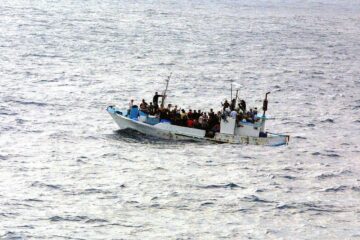![]()
Introduction:
Ties with other countries based on trade, religion, culture, etc. goes back thousands of years. Ancient civilizations used to send their emissaries in the form of tradesmen, religious heads, etc. to make ties with other countries. Since every civilization had different kinds of rules and regulations. These emissaries were also treated in the same manner and not given the punishment of the host country. Similarly, today keeping in mind the importance of having allies in a tensed global cooperation many countries follow procedures to arrest diplomats that may have committed crimes in their country.
Diplomatic Immunity
Diplomatic immunity is a form of legal immunity that grants safe passage and immunity from the jurisdiction by the state in which they are working. It is usually apply to diplomats and consular from other countries working in embassies in the host country. There are different rules to bring out charges on them. As discuss above giving certain exemptions and rights to diplomats from other countries has been the norm for hundreds of years. Many principles of diplomatic immunity are consider to be customary laws.
It was developed to allow for relations even during times of conflict so that there is a better chance for peace. But there was a rise of misuse of such powers as many of them started sheltering drug peddlers and other criminals from their home countries. To formalize and limit the extensive powers of diplomats the 1961 Vienna Convention on Diplomatic Relations enact. As of 2020 192 countries are signatory to it. It forms the legal basis for diplomatic immunity. Before this convention, the Congress of Vienna in 1815 was the first attempt to make a framework for diplomatic relations across the country. The United Nations also adopted two years later the Vienna Convention on Consular Relations.
The Vienna Convention on Diplomatic Relations consists of 53 Articles. Some of the important ones are:
- Article 9: It mentions that the host nation can at any time. For any reason can declare a particular member of the diplomatic staff to be persona non grata i.e. t=They can prohibit the foreign diplomat from entering the country again.
- Article 22: It mentions the power of the premises of the diplomatic mission. They are to be inviolable and the officials or citizens of the host country cannot enter the premises; without the express permission of the head of the mission. The host country should also protect the area from any intrusion or damage.
- Article 30: It extends the power of premises to the private residence of the diplomats.
- Article 24: The host country cannot seize or search the documents of the diplomatic mission
- Article 27: The host country has to protect the free communication between diplomats of the mission and the sending country. Thus a diplomatic bag cannot be searched even if they think it is part of any crime.
- Article 29: one of the important provisions is that the diplomats cannot be arrested or detained. They are immune from civil or criminal prosecution.
- Article 32: If the host country requests that a diplomat was involve in some crime. Then the sending country can waive the diplomats right to immunity. Thus the host country than can prosecute the person.
Similarly, the working of the Vienna Convention on Consular Relations applies usually to consular offices that take care of travel documents and interests of the foreign nationals who are visiting the host country. They do not have the same level of immunity as the diplomats as diplomats are the direct representatives of the sending country.
Different Levels of Immunity
It’s not that every official in a diplomatic mission to the host country would get the same level of wide-ranging immunity. The immunity provide is divide into three stages
- The first category contains the diplomatic agents which are high ranking embassy officials who serve the function of dealing directly with their host country’s officials. They are give the highest diplomatic immunity and they cannot be arrest for any crime. They can only be prohibit from entering the country by placing persona non grata on them. The immunity applies to their family members too.
- The second category contains embassy personnel which includes the administrative and technical staff and who directly support the diplomatic activities. They enjoy the same immunity from police actions and criminal courts. But are give lesser immunity for the civil wrongs by them. They can be sue for any act except those which were in connection to their official work. This kind of immunity does not apply to their family members.
- The third category contains embassy employees like the drivers who indirectly support the diplomatic activities. They are the lowest amount of diplomatic immunity. They get immunity from the courts only for the acts in the official function. The immunity does not apply to their family members.
There are exceptions to these clauses. The second and the third category staff can also get the highest immunity if the host country and the sending country come into a special kind of agreement. It builds up the alliance even more. The sending country may also waive the immunity of its officials sent to any country.
Devyani Khobragade Incident
This incident was as one of the low points in the India US relations after the cold war. Devyani Khobragade is a young diplomat who post as Deputy Consul General for Political, Economic, Commercial and Women’s Affairs. She is arrest on December 12 after dropping her daughter at school. The US authorities accused her of helping her maid to submit false documents saying that she paid $ 4500 but in reality, she was paying far less. she was indicted for visa fraud and false statements.
The main contention of uproar among the Indian diplomats was the way she was treated. She was strip and cavity searched, swabbing method, and held with drug addicts. In retaliation, the Indian Government too came down heavily on the US diplomats. They blocked perks like concessions on alcohol, meat, etc. they also removed the barriers outside the US embassy. Many prominent leaders refused to meet US delegates visiting India. She was later granted diplomatic immunity but the damage in the relationship was already done.
Conclusion
We have seen the method in which the diplomacy in the world works. The powers given to the diplomats were immense and far-reaching before it was formalized in the Vienna convention. Still, many use it for criminal activities. The infamous case of Saudi diplomat keeping two Nepalese women in his home and constantly raping them is perhaps the most shocking news we have heard from a person holding such coveted positions. Thus it was important to bring in proper procedures that will state the various kinds of immunities accorded to them.
The Devyani incident did lead to souring relations but they were again uplifted due to the diplomacy done by both countries. Thus we can see how important it to place your ambassadors in different countries to increase bilateral relations in many aspects but we should also see up to it that those who hold such power do not misuse it and bring shame to their country.



0 Comments